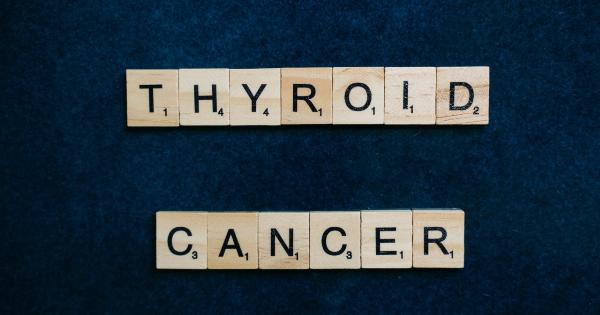Understanding the Signs of a Thyroid Imbalance.
What is the Thyroid Gland and its Functions?
The thyroid gland is a butterfly-shaped gland located in the neck, just below the Adam’s apple. Despite its small size, this gland plays a crucial role in regulating various bodily functions.
The thyroid gland produces hormones that control metabolism, growth, and development. These hormones, known as thyroxine (T4) and triiodothyronine (T3), influence the functioning of nearly every organ in the body.
Types of Thyroid Imbalances
There are two main types of thyroid imbalances:.
Hypothyroidism
Hypothyroidism occurs when the thyroid gland doesn’t produce enough hormones. This condition can slow down various bodily functions and lead to symptoms such as fatigue, weight gain, dry skin, hair loss, and depression.
Hyperthyroidism
Hyperthyroidism, on the other hand, occurs when the thyroid gland produces an excess of hormones. This can speed up the body’s metabolism, causing symptoms such as weight loss, rapid heartbeat, anxiety, irritability, and excessive sweating.
Signs and Symptoms of a Thyroid Imbalance
A thyroid imbalance can manifest in various signs and symptoms, which may differ depending on whether it is hypothyroidism or hyperthyroidism.
Signs of Hypothyroidism
1. Fatigue: Feeling excessively tired, even after getting enough rest.
2. Weight gain: Unexplained weight gain or difficulty losing weight.
3. Sensitivity to cold: Feeling excessively cold, particularly in the hands and feet.
4. Hair loss: Experiencing hair loss or thinning, especially on the scalp.
5. Dry skin: Having dry and itchy skin that may appear flaky.
Symptoms of Hypothyroidism
1. Mood changes: Feeling depressed, irritable, or anxious.
2. Constipation: Experiencing infrequent bowel movements and difficulty passing stool.
3. Muscle weakness: Feeling weak and fatigued, with reduced strength.
4. Memory problems: Having difficulty concentrating, remembering, or thinking clearly.
5. Menstrual irregularities: Experiencing heavier, more frequent, or painful periods.
Signs of Hyperthyroidism
1. Weight loss: Experiencing unexplained weight loss, despite regular eating habits.
2. Rapid heartbeat: Having a fast and irregular heart rate.
3. Increased appetite: Feeling constantly hungry and experiencing an insatiable appetite.
4. Tremors: Experiencing trembling or shaking hands.
5. Sweating: Experiencing excessive sweating and feeling hot frequently.
Symptoms of Hyperthyroidism
1. Anxiety and irritability: Feeling restless, nervous, or easily agitated.
2. Sleep problems: Having difficulty falling asleep or staying asleep.
3. Changes in bowel movements: Experiencing more frequent bowel movements or diarrhea.
4. Muscle weakness: Feeling weak and fatigued, with muscle wasting.
5. Changes in vision: Experiencing vision problems, such as double vision or bulging eyes.
When to See a Doctor
If you experience any of the signs or symptoms mentioned above, it is important to consult with a healthcare professional. They can evaluate your symptoms, conduct relevant tests, and provide an accurate diagnosis.
Proper medical care is essential for managing and treating thyroid imbalances.
Treatment for Thyroid Imbalances
The treatment for thyroid imbalances depends on the specific condition and its severity. In the case of hypothyroidism, synthetic thyroid hormone medication may be prescribed to restore hormone levels.
Hyperthyroidism can be treated with medications to block the excess thyroid hormone production or through radioactive iodine therapy to destroy part of the thyroid gland. In some cases, surgical removal of the thyroid may be necessary.
Conclusion
Understanding the signs of a thyroid imbalance is crucial for early detection and proper management of these conditions.
If you experience any of the mentioned signs or symptoms, seeking medical attention is vital for an accurate diagnosis and appropriate treatment. With timely and effective intervention, individuals with thyroid imbalances can lead healthy and fulfilling lives.





























